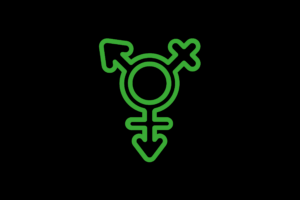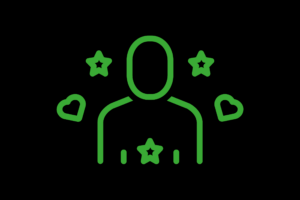“Bullying is when one person or a group of people deliberately hurt another person, more than once, and it’s hard for the person on the receiving end to defend themselves.” – Kidscape
Bullying can happen to anyone of any age, whether they are autistic or not. It isn’t just something that happens in schools – it can happen anywhere.
Are some people more at risk of being bullied than others?
Bullying can occur when someone behaves or looks different to the majority, or seems less confident, making them an easier target. However, it can also happen to confident and successful people as a result of jealousy.
Some studies say that over 62% of autistic young people experience bullying. This is possibly because autistic people think and experience the world differently to the majority, and being different is one of the common reasons why people are bullied.
You might have experienced being bullied. Bullying is not okay!
If you are being bullied, we recommend talking to a trusted adult.
Common experiences shared by autistic young people
Some autistic young people have said that teachers dismiss bullying. Teachers sometimes say it is just banter, or you have to toughen up, or that they can’t help if they didn’t see it, or even, you invited it by behaving ‘weird’ or different.
This is not okay – speak to another adult if this is a response you experience.
It can be difficult to recognise if people are being friendly, teasing or bullying you. Forming friendships isn’t always easy, but that doesn’t mean you have to be friends with people who are unkind to you. There is even something called ‘mate crime’ that means someone pretends to be your friend just to take advantage of you. They might often ask you for money or say horrible things about you to others when you are not there.
Bullying can also happen online. In addition to being unkind, this can involve sharing images or videos of you without your permission. This is not okay – take a screenshot as proof, then speak to a trusted adult for advice and support.
For more advice on cyberbullying you can visit https://www.internetmatters.org/issues/cyberbullying/
Sometimes you might misunderstand or misinterpret what others say and do. That is okay and many people do that. It can be more tricky to interpret others if you are autistic, but it is a two way thing. Other kids might often misinterpret what you say or do, too. To understand more about this you might want to read about the ‘double empathy problem’.
Kids can say a lot of hurtful things to each other. They pick out differences and make fun of them. This seems to be accepted as part of growing up for many neurotypicals.
This is not okay. We can all learn to be kinder and respect each other. There are plenty of nice people out there too.
Bullying can be very sneaky. It can be making a noise that they know triggers your senses, calling you a bad name or telling lies to a teacher about you. It can be touching you when they know you hate it or trying to trip you up.
This is not okay – you don’t deserve to be bullied, you deserve to feel safe.
What should I do?
-
- Talk to a trusted person. We have said this many times because it is vital you reach out and share what has happened with someone. A trusted person might be a parent/carer, a friend, a sibling, a teacher, a cousin, an aunt or a youth worker. It can be anyone you trust who can help you.
-
- Get help. Get in touch with an organisation such as Kidscape or Childline if you really do feel that no one is listening to you. Don’t give up – you don’t need to tackle the problem alone.
Kidscape: https://www.kidscape.org.uk/advice/advice-for-young-people/
Call Childline on 0800 1111 or visit: https://www.childline.org.uk/get-support/contacting-childline/
- Get help. Get in touch with an organisation such as Kidscape or Childline if you really do feel that no one is listening to you. Don’t give up – you don’t need to tackle the problem alone.
-
- Always prioritise your safety. People have different ideas about how to respond to being picked on and bullied. Some try to ignore it and some try to think of a clever answer or insult them back. Sometimes a clear ‘no’, or walking away to a safe place can help.
-
- Report online bullying. This could be on social media or gaming. Report it to an adult and they can support you to report it to the relevant people or organisation. For advice on Cyber Safety go to: https://www.internetmatters.org/issues/cyberbullying/
-
- Re-build your confidence. Bullying can make you feel bad. It can destroy your confidence and make you unhappy ,so try to do things that might help you feel better. See our page on well-being to understand more about this.
-
- Keep notes/a diary if you can. It might be hard to remember details or recognise people who have been bullying you. Think about any features you noticed like their voice, their bag colour or hair style instead. If you can, make a note of anything you know about them or where it happened.
You may find it useful to take a look at our page on friendships.
A collaboration between:
-
Lynn McCann, Autism, ADHD and PDA Specialist Teacher and author | Website | Facebook page
-
Bobbie Gilham, Neurodivergent Parent of Autistic Teenager, Admin at Spectrum Gaming
-
Claire Lowen, Changemaker and LGBT Lead at Spectrum Gaming



